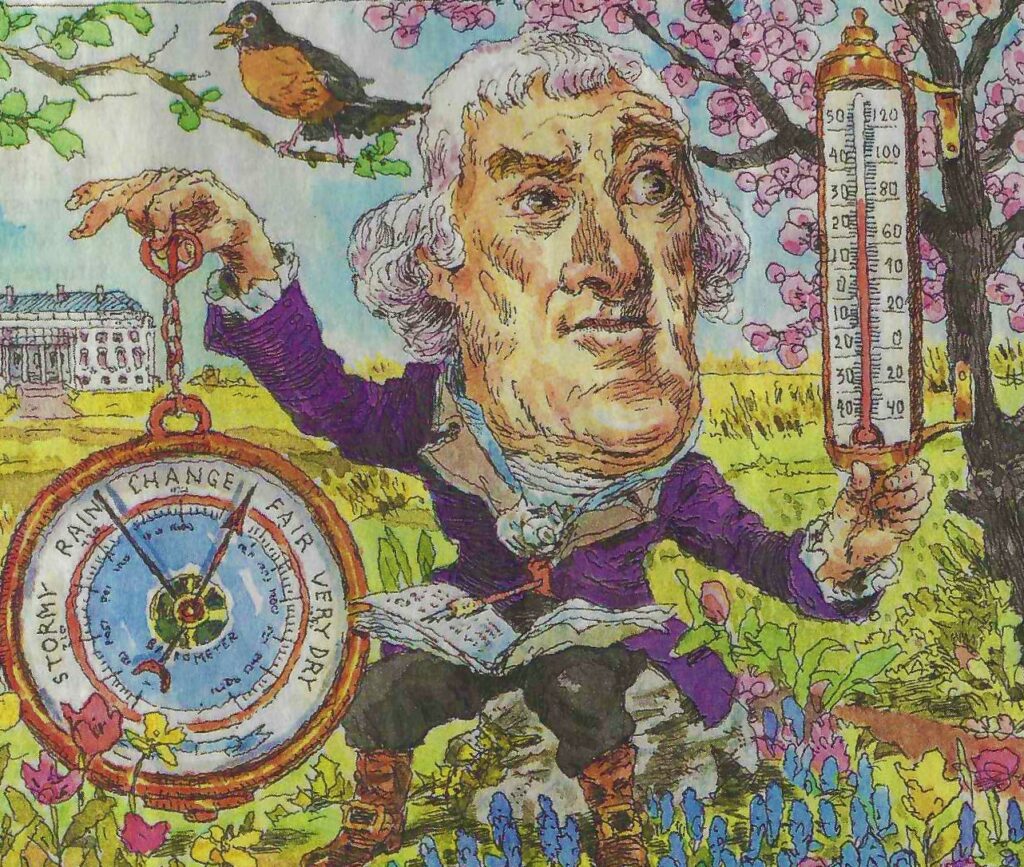Commentary
Realizing that there have been cyclical changes in our climate over centuries, I continue to be critical of the scare tactics leftists are attaching to drought, floods, wildfires, and natural disasters like tornados and hurricanes.
Of course, they blame our use of fossil fuels and the emissions being the primary cause and the Biden administration is throwing billions of dollars at an effort to go all-electric without considering the consequences.
Recently, while researching the nature of political news coverage pre-24/7 cable news, ala NBC, CBS and ABC, and the advent of social media, I came across coverage of massive flooding in the Mississippi River valley by Tom Brokaw on NBC in 1993.
It was the result of the wettest winter and spring in 121 years.
Just a week later, the floods were still wreaking havoc in the Midwest, while further east, a deadly heat wave was pushing electrical grids to the limit and dozens of people died as a result of heat stroke and dehydration.
Yet, there was no blame cast on climate change or humans being responsible, just comments on nature having its way. How interesting.
At CBS, Walter Cronkite had devoted considerable time to pollution in the 1970’s, but it was Brokaw who got the attention of environmental activists, as he began to speak of global warming and saw him as their new voice on television.
In 2006, he hosted a Discovery Channel documentary titled “Global Warming: What You Need to Know.”
He was severely criticized by the Senate Environmental and Public Works Committee for the lack of objectivity and balance on the issue of global warming, citing his partisan reliance on scientists who openly endorsed presidential candidate John Kerry in 2004, and who were financially affiliated with left wing environmental groups.
Brokaw was known for his affiliation with the Sierra Club and for his praise of Al Gore’s film, “An Inconvenient Truth.”
In 2009, five years after he had supposedly retired from NBC, TIME magazine interviewed him on his follow-up documentary for Discovery, “Climate Change: The New Challenge with Tom Brokaw, stating “I think the vast majority of the scientific community – and much of the public – believes that it is real,” reporting that things were “getting worse, not better.”
There was his role as moderator on climate change at Yale in 2011, his speech at the Global Climate Talks in Durban, South Africa in 2017, and dozens of appearances in between.
Over the years, the rest of the leftist media have taken the Brokaw mantel on climate change, and today there isn’t a single news anchor who will take a stand as a skeptic because of his or her corporate management’s position. It is why I say journalism is dying.
Brokaw had a following in his years at NBC, from the Today Show to Meet the Press, especially by South Dakotans, who were proud to say he was one of them, but there never was a question that he was a liberal.
Meanwhile, Cronkite, who after nearly two decades at CBS, was often cited as “the most trusted man in America,” concealed his political leaning fairly well. After his caustic reporting on the war in Vietnam, it is believed that President Lyndon Johnson chose not to run again, saying “If I’ve lost Cronkite, I’ve lost middle America.”
My admiration of Brokaw stopped with his perfect made for radio and TV voice, although his recollection of “The Greatest Generation,” was outstanding.
But back to the cyclical nature of climate change. In California, where the season’s snowpack is on course to be the largest or the second largest since modern records began in 1950, there was no serious concern about climate change in a major piece in the New York Times. Instead, they wrote how it “has sparked delight among skiers” along with a “more complex brew of emotions among farmers and water managers, who are ready to embrace the water bounty.”
Of course, the coverage will likely change when the snow melt results in flooding.
At the Snowbowl near Flagstaff, Arizona, they announced it would remain open for skiing through the end of May, the longest since 1938, as the National Weather Service monitored a record-breaking snowfall.
No concern over climate change there either.
SIDEBAR from my stack of stuff: According to a weekend feature in the Wall Street Journal, Thomas Jefferson kept a diary in which recorded two temperature readings a day for 50 years. He was trying to find evidence that the climate was changing in North America in the second half of the 18th Century.
May God continue to bless the United States of America.







